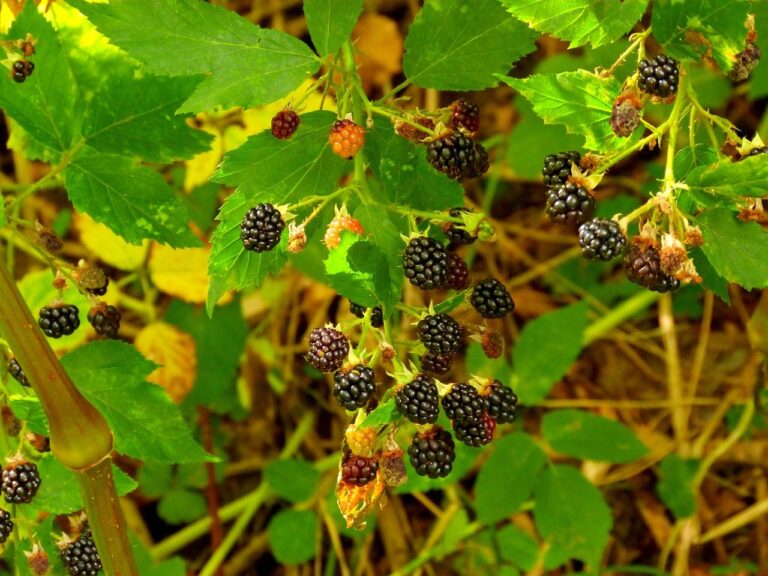Honey Production and Organic Certification: 11xplay.com login, Lesar 247.com, Tiger 247 login
11xplay.com login, lesar 247.com, tiger 247 login: Honey production is a thriving industry that plays a significant role in agriculture and the economy worldwide. With the growing demand for organic products, many honey producers are seeking organic certification to cater to this market segment. In this article, we will explore the process of obtaining organic certification for honey production and the benefits it brings to both producers and consumers.
What is Organic Certification?
Organic certification is a process through which a third-party certifying agency verifies that a product meets specific organic standards. These standards typically include factors such as the use of natural inputs, sustainable practices, and the absence of synthetic chemicals or genetically modified organisms (GMOs).
For honey production, organic certification ensures that the bees are kept in an organic environment, away from pesticides and other harmful chemicals. It also guarantees that the honey is processed and packaged according to organic standards, maintaining its purity and quality.
Benefits of Organic Certification for Honey Production
1. Premium Pricing: Organic honey commands a higher price in the market due to its perceived health benefits and purity. Organic certification can help honey producers tap into this lucrative market segment and generate higher revenues.
2. Consumer Trust: Organic certification provides consumers with the assurance that the honey they are purchasing is free from harmful chemicals and produced in a sustainable manner. This builds trust and loyalty among consumers, leading to repeat purchases and positive word-of-mouth.
3. Environmental Sustainability: Organic honey production promotes sustainable practices such as bee-friendly farming, biodiversity conservation, and natural pest control. This benefits the environment by reducing the use of synthetic chemicals and preserving ecosystems.
4. Regulatory Compliance: Organic certification ensures that honey producers comply with strict organic standards set by certifying agencies and regulatory bodies. This protects both producers and consumers from fraud and maintains the integrity of the organic label.
5. Market Access: Many retailers and consumers prefer to buy organic products, creating a growing market for organic honey. Organic certification opens up opportunities for honey producers to access premium retail outlets and online platforms catering to organic products.
6. Health Benefits: Organic honey is believed to offer more health benefits compared to conventional honey, as it is free from pesticide residues and contains higher levels of antioxidants. Organic certification reinforces these health claims and adds value to the product.
How to Obtain Organic Certification for Honey Production
Obtaining organic certification for honey production involves several steps, starting from the implementation of organic practices on the farm to the final inspection by a certifying agency. Here is a general overview of the certification process:
1. Farm Preparation: Ensure that the bees are kept in an organic environment free from pesticides, GMOs, and other prohibited substances. Adopt sustainable farming practices such as crop rotation, cover cropping, and natural pest management.
2. Documentation: Keep detailed records of all inputs used in honey production, including hive treatments, feed, and harvesting methods. This documentation is crucial for demonstrating compliance with organic standards during the certification process.
3. Application: Submit an application to a third-party certifying agency accredited by the relevant regulatory body. Provide all necessary information about your farm, practices, and honey production methods for review.
4. Inspection: A qualified inspector will visit your farm to assess compliance with organic standards. They will inspect the hives, beekeeping practices, processing facilities, and record-keeping systems to ensure that all requirements are met.
5. Certification: If the inspector finds your farm in compliance with organic standards, you will receive organic certification for your honey production. This certification allows you to label and market your honey as organic, opening up new opportunities in the organic market.
6. Annual Renewal: Organic certification is typically valid for one year and must be renewed annually. You will need to undergo regular inspections and audits to maintain your certification and ensure continued compliance with organic standards.
FAQs
Q: How long does it take to obtain organic certification for honey production?
A: The certification process can vary depending on the certifying agency and the complexity of your farm operations. On average, it can take anywhere from a few months to a year to obtain organic certification for honey production.
Q: Does organic honey taste different from conventional honey?
A: Organic honey is not necessarily sweeter or tastier than conventional honey, but it is believed to have a purer flavor due to the absence of pesticide residues and other contaminants. The taste may vary depending on the floral sources and beekeeping practices.
Q: Can small-scale honey producers afford organic certification?
A: Organic certification can be costly for small-scale honey producers, as it involves fees for application, inspection, and ongoing maintenance. However, some certifying agencies offer group certification or subsidies for small farmers to make certification more accessible.
Q: Is organic honey more sustainable than conventional honey?
A: Organic honey production promotes sustainable farming practices such as biodiversity conservation, natural pollination, and soil health, making it more environmentally friendly than conventional honey production. However, sustainability also depends on factors such as transportation, packaging, and waste management.
Q: Are there different levels of organic certification for honey production?
A: Organic certification typically follows a binary system, where a product is either certified organic or not. However, some certifying agencies may offer different levels of certification based on the degree of compliance with organic standards or additional sustainability criteria.
In conclusion, organic certification offers numerous benefits for honey producers looking to tap into the growing market for organic products. By following the steps outlined in this article and maintaining compliance with organic standards, you can ensure the quality, purity, and sustainability of your honey production. Organic honey not only provides health benefits to consumers but also supports environmental conservation and ethical beekeeping practices. If you are a honey producer interested in organic certification, consider taking the next steps towards a more sustainable and profitable future.







